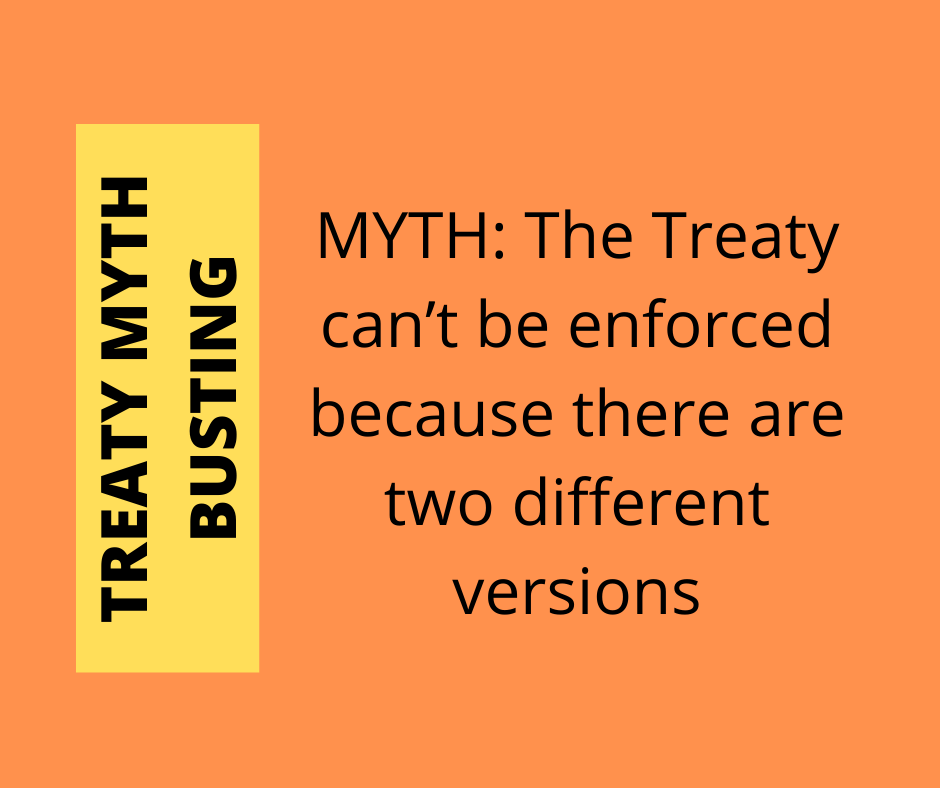There are definitely conflicts in the two documents:
- The Treaty in te reo (including its expression into English), and
- the English version.
The Treaty in the Māori language was signed by Captain Hobson and over 500 Rangatira, over 40 of them at Waitangi on February 6th 1840.
The English version, only written after February 6th, was signed at Port Waikato/Manukau, where the discussion would have been of the content of the Māori text, but the English version was signed (by approximately 40 Rangatira).
When two documents conflict …
In international law where there is any ambiguity:
- The contra proferentem principle applies, which means that a decision is made against the party that drafts the document, and
- the indigenous language text takes preference.
In oral cultures such as Māori, verbal agreements take preference over what is written.
This means that for the Treaty of Waitangi the text in te reo takes precedence on all these counts.
In November 2014 the Waitangi Tribunal summarised their conclusions on the Nga Puhi claim (WAI 1040):
- The rangatira who signed te Tiriti in February 1840 did not cede their sovereignty to Britain. That is, they did not cede authority to make and enforce law over their people or their territories.
- The rangatira agreed to share power and authority with Britain. They agreed to the Governor having authority to control British subjects in New Zealand, and thereby keep the peace and protect Māori interests.
- The rangatira consented to the treaty on the basis that they and the Governor were to be equals, though they were to have different roles and different spheres of influence. The detail of how this relationship would work in practice, especially where the Māori and European populations intermingled, remained to be negotiated over time on a case-by-case basis.
- The rangatira agreed to enter into land transactions with the Crown, and the Crown promised to investigate pre-treaty land transactions and to return any land that had not been properly acquired from Māori.
- The rangatira appear to have agreed that the Crown would protect them from any foreign threats and represent them in international affairs, where that was necessary.
Source: Treaty of Waitangi Questions & Answers, Network Waitangi 2018
See also: https://nwo.org.nz/resources/treaty-poster/

